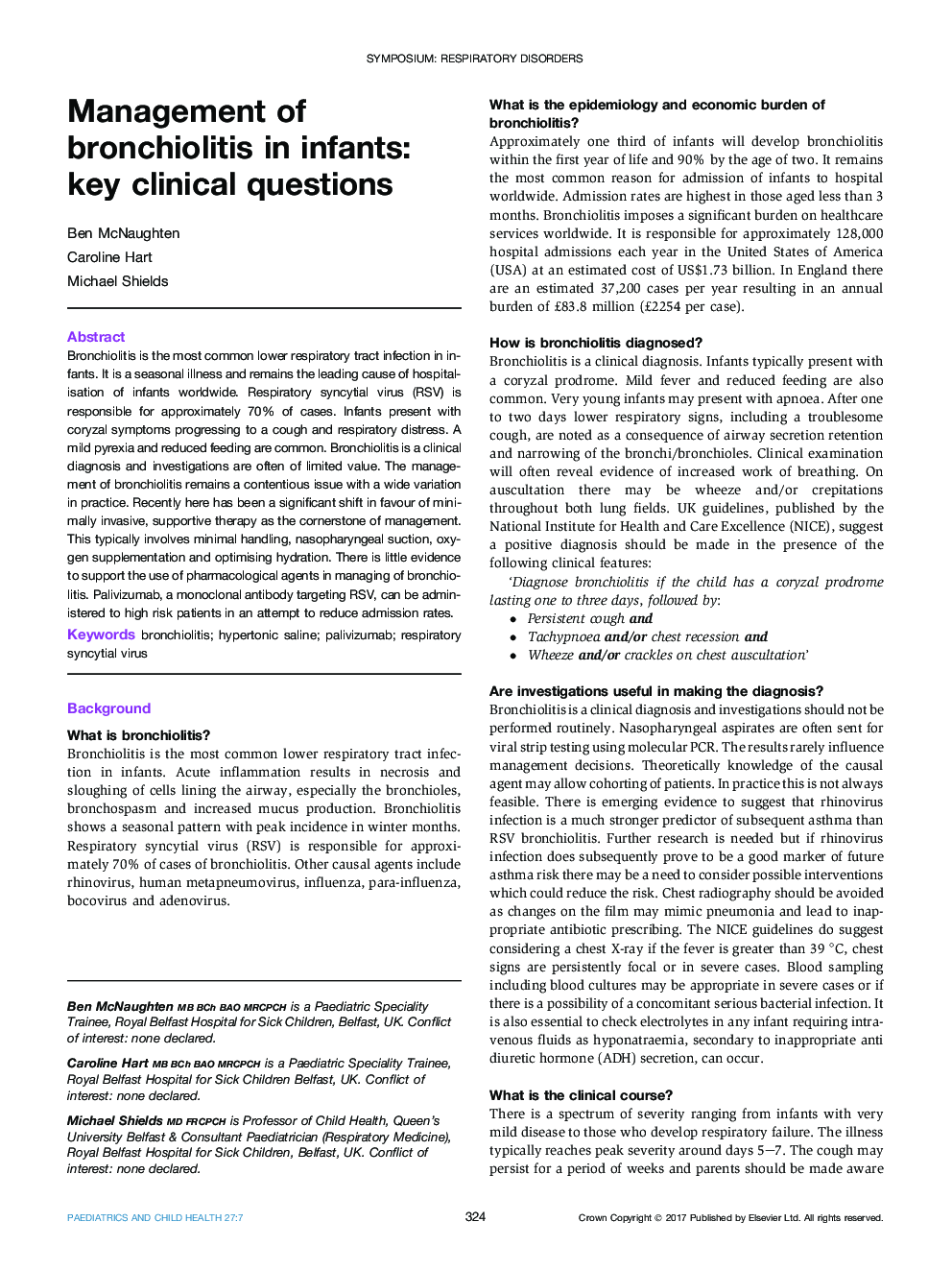| Article ID | Journal | Published Year | Pages | File Type |
|---|---|---|---|---|
| 5720005 | Paediatrics and Child Health | 2017 | 4 Pages |
Bronchiolitis is the most common lower respiratory tract infection in infants. It is a seasonal illness and remains the leading cause of hospitalisation of infants worldwide. Respiratory syncytial virus (RSV) is responsible for approximately 70% of cases. Infants present with coryzal symptoms progressing to a cough and respiratory distress. A mild pyrexia and reduced feeding are common. Bronchiolitis is a clinical diagnosis and investigations are often of limited value. The management of bronchiolitis remains a contentious issue with a wide variation in practice. Recently here has been a significant shift in favour of minimally invasive, supportive therapy as the cornerstone of management. This typically involves minimal handling, nasopharyngeal suction, oxygen supplementation and optimising hydration. There is little evidence to support the use of pharmacological agents in managing of bronchiolitis. Palivizumab, a monoclonal antibody targeting RSV, can be administered to high risk patients in an attempt to reduce admission rates.
